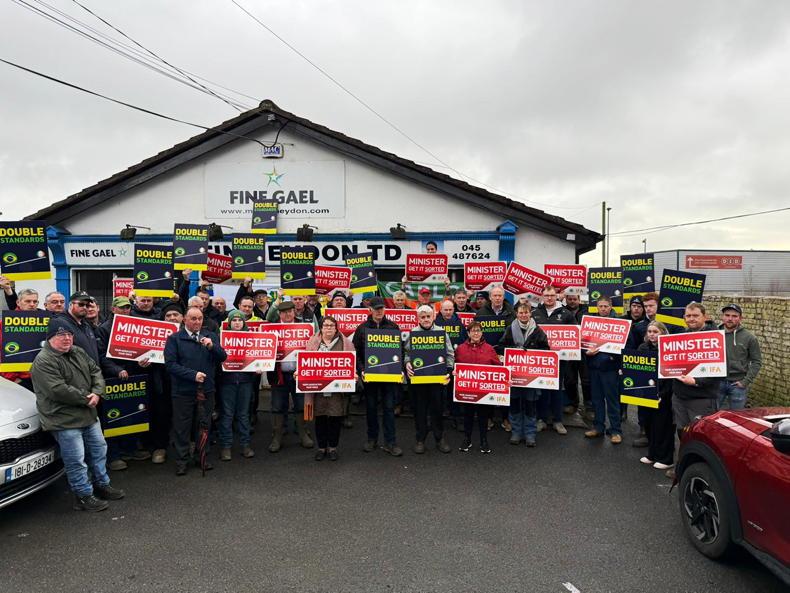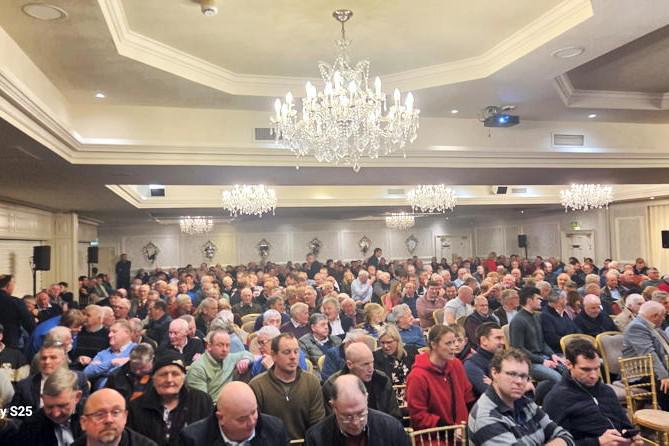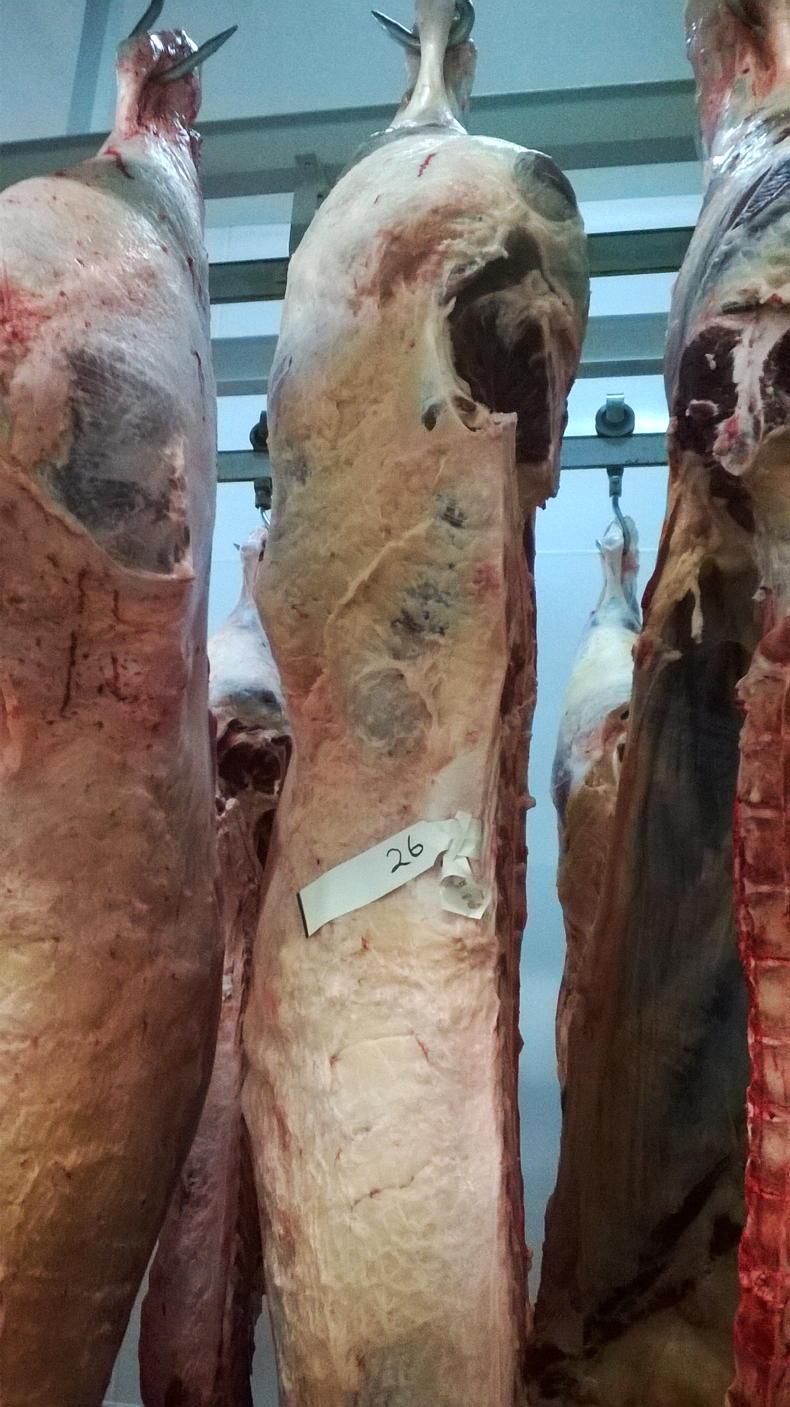The Bord Bia trade mission to China and South Korea, attended by two ministers at the Department of Agriculture and the secretary general, culminated on Friday with the launch of Irish beef at a retail store in Seoul, the capital of South Korea.
The enthusiasm among all those present at the launch was palpable. Securing Irish beef access to South Korea has taken well over a decade of diplomatic efforts by the Government, with multiple visits by senior ministers for agriculture and considerable behind the scenes work by Bord Bia.
Why is Korea important? As the fourth-largest economy in Asia and the 10th-largest in the world and with a population of 52m people, it is a sizeable market.
Not only that, but South Koreans consume a lot of beef at almost 15kg per person, with barbecued beef being a key part of the diet.
Specialist producers
Korean farmers are specialist beef producers, selling high-quality Hanwoo beef - a local breed that has similar marbling to Wagyu.
However, the country is only 40% self-sufficient in beef production, so needs to import over 400,000t of beef annually.
To put that in context, Ireland exports around 500,000t of beef annually, mostly to Europe and the UK.
The opening of the Korean market represents another option for Irish beef exporters, but, importantly, it also represents another option for Korean beef importers.

Bord Bia CEO Jim O'Toole, Minister for Agriculture Charlie McConalogue and Minister of State at the Department of Agriculture Martin Heydon at the launch of Irish beef at an event in Seoul, South Korea
Access to the market is notoriously difficult to achieve and applicant countries must secure parliamentary approval on top of regulatory approval.
There was significant protests in Korea against the granting of approval to US beef in 2008, but a few years later, US beef was the number one exporter to Korea, commanding a 59% market share in 2023 worth over $2.1bn, followed by Australia with 39% of the market.
What is interesting about the US and Australia is that they are, in the main, not supplying grass-based beef, although Australia does have some grass-based labels.
This presents Irish beef as a point of difference to US or Australian imports in terms of taste, but also on other factors, as Korean consumers are getting more and more health conscious.
Health benefits
In a survey conducted by Bord Bia, it was found that Korean consumers strongly associate beef consumption with health benefits due to its high protein content, with grass-fed beef considered to be healthier.
Bord Bia says consuming protein-rich food has become associated with boosting immunity among Koreans with 59% of those surveyed increasing their beef consumption for perceived health and nutrition benefits.
This means that importers and retailers can differentiate Irish beef from both local and imported beef in Korea.

Korean meat importers assessing Irish beef at the launch in Seoul, South Korea, during the trade mission.
Arguably of greater significance to any of the above is the fact that Brazil does not have access to the Korean market.
Brazil is a massive producer of beef and a low-cost producer at that, so it effectively sets the price in any country it exports beef to.
Instead, Irish exporters will be competing mostly with US and Australian exporters on price and quality, which is an area most Irish beef processors will be comfortable in.
ABP is the first Irish exporter to get product into Korea, partnering with high-end retailer and importer K-Meats under the Grass Advantage Beef (GAB) label.
Opportunity
ABP head of international sales Martin McMahon attended the Chinese leg of the trade mission, while international sales representative Ian Lavery was present for the launch in Seoul. Other processors are set to enter the market shortly.
Speaking to the Irish Farmers Journal on Friday, Minister for Agriculture Charlie McConalogue said that the Korean market represents a real opportunity for the Irish beef sector.
“The offering we have is quite unique, being grass-fed, so it’s one we are going to prioritise in the time ahead and look to develop.
"Most of our meat, 95%, is exported to the EU and the UK, but 5% is exported outside of those markets and Korea is a market that can really offer opportunities,” he said.
The main cuts being exported into Korea will be primarily short ribs and top loin, which is in high demand in Korea.
The Bord Bia trade mission to China and South Korea, attended by two ministers at the Department of Agriculture and the secretary general, culminated on Friday with the launch of Irish beef at a retail store in Seoul, the capital of South Korea.
The enthusiasm among all those present at the launch was palpable. Securing Irish beef access to South Korea has taken well over a decade of diplomatic efforts by the Government, with multiple visits by senior ministers for agriculture and considerable behind the scenes work by Bord Bia.
Why is Korea important? As the fourth-largest economy in Asia and the 10th-largest in the world and with a population of 52m people, it is a sizeable market.
Not only that, but South Koreans consume a lot of beef at almost 15kg per person, with barbecued beef being a key part of the diet.
Specialist producers
Korean farmers are specialist beef producers, selling high-quality Hanwoo beef - a local breed that has similar marbling to Wagyu.
However, the country is only 40% self-sufficient in beef production, so needs to import over 400,000t of beef annually.
To put that in context, Ireland exports around 500,000t of beef annually, mostly to Europe and the UK.
The opening of the Korean market represents another option for Irish beef exporters, but, importantly, it also represents another option for Korean beef importers.

Bord Bia CEO Jim O'Toole, Minister for Agriculture Charlie McConalogue and Minister of State at the Department of Agriculture Martin Heydon at the launch of Irish beef at an event in Seoul, South Korea
Access to the market is notoriously difficult to achieve and applicant countries must secure parliamentary approval on top of regulatory approval.
There was significant protests in Korea against the granting of approval to US beef in 2008, but a few years later, US beef was the number one exporter to Korea, commanding a 59% market share in 2023 worth over $2.1bn, followed by Australia with 39% of the market.
What is interesting about the US and Australia is that they are, in the main, not supplying grass-based beef, although Australia does have some grass-based labels.
This presents Irish beef as a point of difference to US or Australian imports in terms of taste, but also on other factors, as Korean consumers are getting more and more health conscious.
Health benefits
In a survey conducted by Bord Bia, it was found that Korean consumers strongly associate beef consumption with health benefits due to its high protein content, with grass-fed beef considered to be healthier.
Bord Bia says consuming protein-rich food has become associated with boosting immunity among Koreans with 59% of those surveyed increasing their beef consumption for perceived health and nutrition benefits.
This means that importers and retailers can differentiate Irish beef from both local and imported beef in Korea.

Korean meat importers assessing Irish beef at the launch in Seoul, South Korea, during the trade mission.
Arguably of greater significance to any of the above is the fact that Brazil does not have access to the Korean market.
Brazil is a massive producer of beef and a low-cost producer at that, so it effectively sets the price in any country it exports beef to.
Instead, Irish exporters will be competing mostly with US and Australian exporters on price and quality, which is an area most Irish beef processors will be comfortable in.
ABP is the first Irish exporter to get product into Korea, partnering with high-end retailer and importer K-Meats under the Grass Advantage Beef (GAB) label.
Opportunity
ABP head of international sales Martin McMahon attended the Chinese leg of the trade mission, while international sales representative Ian Lavery was present for the launch in Seoul. Other processors are set to enter the market shortly.
Speaking to the Irish Farmers Journal on Friday, Minister for Agriculture Charlie McConalogue said that the Korean market represents a real opportunity for the Irish beef sector.
“The offering we have is quite unique, being grass-fed, so it’s one we are going to prioritise in the time ahead and look to develop.
"Most of our meat, 95%, is exported to the EU and the UK, but 5% is exported outside of those markets and Korea is a market that can really offer opportunities,” he said.
The main cuts being exported into Korea will be primarily short ribs and top loin, which is in high demand in Korea.










SHARING OPTIONS